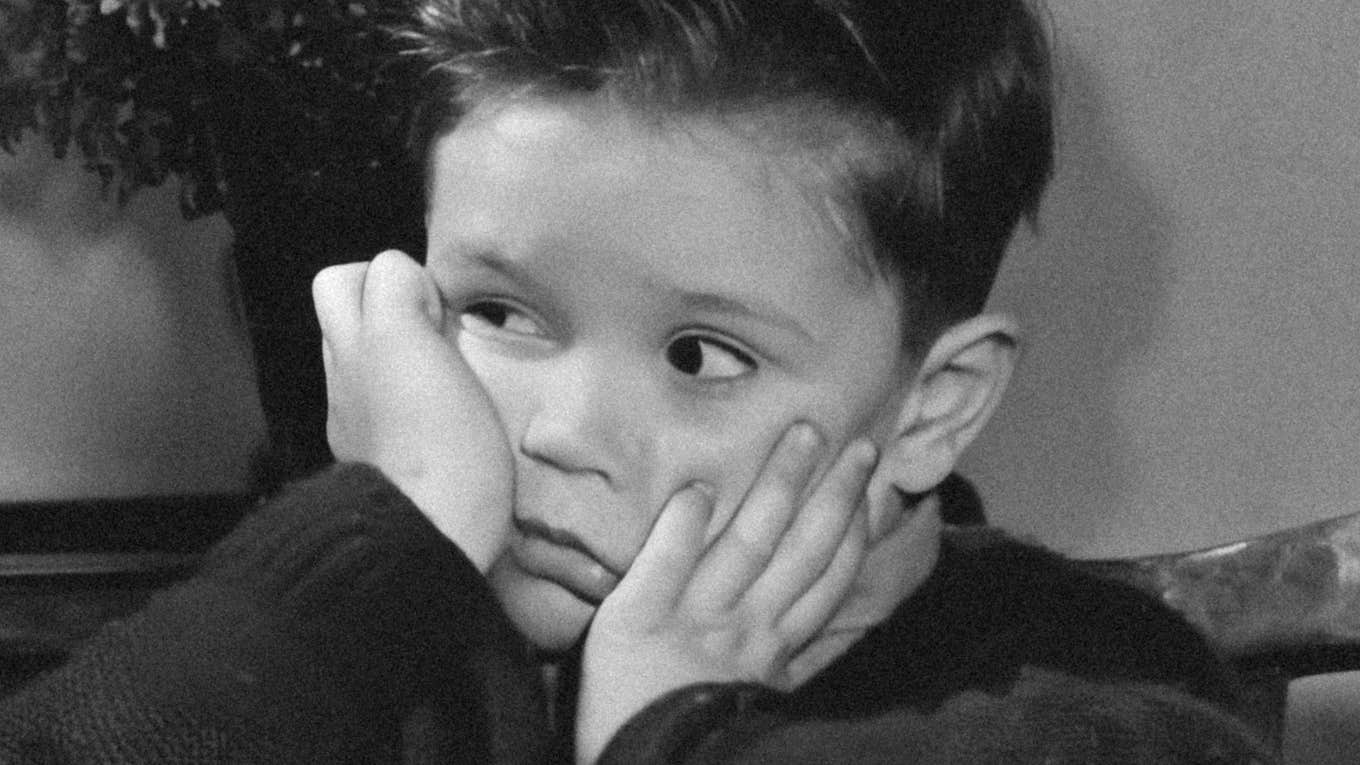10 Habits That Show You Didn't Get The Love You Needed As A Child From Your Mom
How generational trauma affects everyone.
 Christopher Campbell | Unsplash
Christopher Campbell | Unsplash Many people face the common challenge which is self-doubt. It creeps into all aspects of their lives — work, relationships, success, and even with money. It thrives on low self-esteem and manifests in a variety of ways in my mind, body, heart, and spirit.
Did you know that 85% of individuals suffer from low self-esteem? This has a significant impact on your ability to believe in yourself, causing self-doubt, anxiety, and overwhelm.
Often, this low self-esteem is due to experiencing some kind of childhood trauma early in your life or a signal that you didn't get the love you needed as a child from your mother. It’s the emotional energy of self-doubt, fear, and lack of self-esteem that gets trapped in the cells of your body.
One major source of self-doubt is often in our relationships with our parents. Did you have a toxic or self-obsessed mother growing up? This may contribute to your challenges with self-esteem today. But there are ways to break the pattern.
The science of epigenetics shows that these family trauma patterns can impact the body for 3 or more generations, creating a cascade of self-doubt.
Reflect and see if your mother exhibited any of these kinds of behaviors towards you when you were growing up. You can then begin to trace your self-doubt back to its root causes and eliminate what's been holding you back for far too long.
Here are habits that show you didn't get the love you needed as a child from your mother:
1. You feel like you're not good enough
 DimaBerlin / Shutterstock
DimaBerlin / Shutterstock
Growing up with an overly critical or judgmental mother can significantly impact a person's self-esteem. This often leaves them feeling inadequate and not good enough due to the internalization of negative messages from their parent.
A study published in the Journal of Experimental Child Psychology explained that this can manifest in various ways, including low self-worth, anxiety, perfectionism, and even depression in some cases.
2. You have low self-esteem
A mother's failure to acknowledge her child's accomplishments can stem from several factors, including parental insecurity, high expectations, a critical parenting style, a lack of emotional availability, potential jealousy, or even a reflection of her upbringing. All of these can significantly impact a child's self-esteem and sense of validation.
3. You often feel inadequate
When a mother rarely makes a child feel special for who they are, it can significantly impact their self-esteem. Research published by The Gottman Institute explained that this can lead to feelings of inadequacy, insecurity, and a lack of belonging, often referred to as mommy issues in popular psychology. These issues stem from a lack of unconditional positive regard and emotional validation from the parent.
4. You have trouble regulating your emotions
A mother's lack of attention can significantly impact a child's development, leading to potential issues with self-esteem, emotional regulation, relationship building, and overall well-being. When severe, this is often referred to as emotional or childhood neglect.
A study published in the International Journal of Advances in Engineering and Management showed that this can manifest in behaviors like seeking excessive attention, difficulty forming healthy attachments, and struggles with trust and intimacy in adulthood.
5. You feel excluded
Research has shown that feeling excluded lights up the same brain centers as physical pain. Being excluded by a parent or sibling makes you feel like you don't belong in other places in your life. This extreme form of childhood emotional neglect can be a form of gaslighting.
6. You have a negative attitude
A mother consistently displaying a negative attitude can significantly impact a child's emotional well-being, potentially leading to low self-esteem, anxiety, and difficulty forming healthy relationships, with studies often exploring the concept of negative affectivity in mothers and its influence on child development. This can be particularly damaging when combined with critical or dismissive behaviors towards the child.
7. You have impossibly high standards
 fizkes / Shutterstock
fizkes / Shutterstock
A mother with impossibly high standards often falls under parenting perfectionism. This can lead to significant negative impacts on both the mother and child, including increased stress, anxiety, low self-esteem in the child, and potential parental burnout in the mother, especially when these standards are perceived as unrealistic and unattainable.
8. You have recurring mental health issues
A mother putting down her child to make herself feel better is often linked to low self-esteem, a need for control, or unresolved personal issues in the mother, which can manifest as a form of emotional manipulation or projection onto the child, where the mother unconsciously transfers her negative feelings onto them to alleviate her discomfort.
Research published in The Journal of Marriage and Family explained that this behavior can be particularly damaging to the child's self-esteem and mental health.
9. You have trouble saying no
Growing up with a mother who is a people pleaser can significantly impact a child's development, often leading to the child adopting similar people-pleasing behaviors themselves, stemming from a learned pattern of prioritizing others' needs over their own to maintain approval and avoid conflict, particularly when the mother is seeking validation from others at the expense of her well-being. This can manifest as difficulty setting boundaries, excessive guilt when saying no, and a strong need to be liked by everyone.
10. You have trouble making decisions
Growing up with a highly controlling mother can significantly impact a person's development. This often leads to issues with self-esteem, decision-making, and relationship dynamics later in life, with terms like parental psychological control and overparenting frequently used to describe this phenomenon.
It’s important to know that you’re not alone! Everyone has experienced self-doubt at different moments in life. It’s when it becomes chronic and keeps you from achieving your full potential that can be a sign it's time to get some support.
Learning how you can begin to dismantle the limiting beliefs you’ve been telling yourself is key. Replacing those negative self-beliefs with empowering, positive self-talk and self-love is where the healing begins.
As a first step, you can take the Self-Doubt Finder Quiz to identify which of the 5 Self-Doubt ArchetypesTM are holding you back. With understanding comes power. The power to reclaim your confidence, own your self-worth, and receive recognition and compensation for your contributions. Remember, your mind is elastic.
You can change your negative beliefs and habits and upgrade them for greater happiness, self-confidence, and peace of mind, breaking the family cycles of trauma once and for all.
Michele Molitor, CPCC, CHt, is a certified coach, hypnotherapist, and co-author of the book I Am Perfectly Flawsome - How Embracing Imperfection Makes Us Better. She coaches high-achieving professionals in reducing their overwhelm and reclaiming their self-confidence, calm, and clarity to create a thriving life and career.
